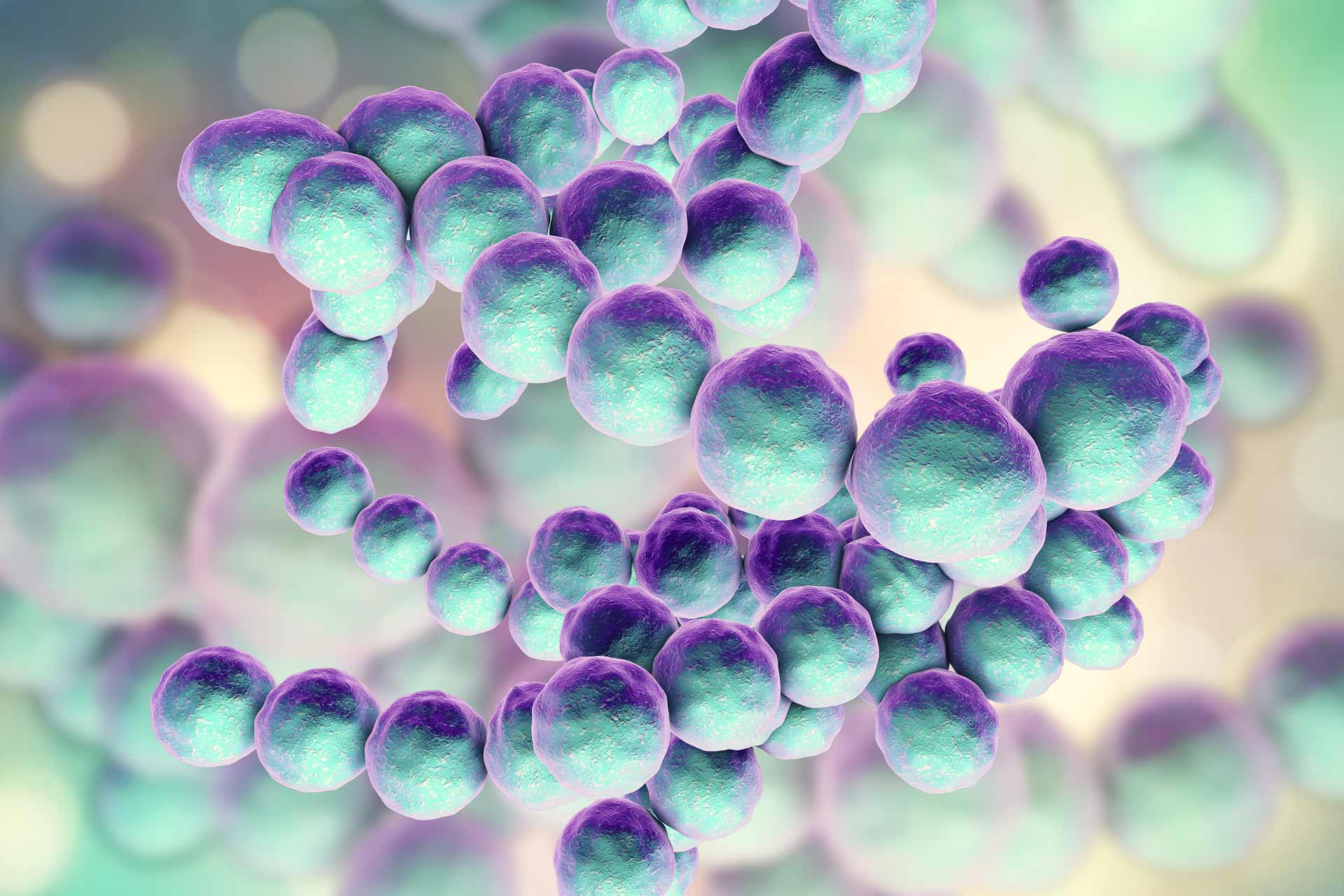[toc]
What is already known on this topic
Studies have shown that oral squamous cell carcinoma (OSCC), the most common cancer of the oral cavity, is accompanied by alterations in the mouth microbiota. But the role of oral bacteria in OSCC remains unclear.
What this research adds
Researchers analyzed samples of tumors and surrounding tissues from people with OSCC. People whose tumors contained higher levels of Peptostreptococcus had a higher probability of long-term survival than those whose tumors contained lower levels of the bacteria. In mice with OSCC, tumor growth was inhibited by injecting Peptostreptococcus anaerobius directly into tumors. However, the beneficial effects of P. anaerobius disappeared when the oral microbiota from patients with OSCC was injected into the mice’s tumors. In these animals, antitumor responses were increased by injecting below the skin a hydrogel containing silver nanoparticles. Combination therapy with silver-nanoparticles hydrogel and P. anaerobius also improved the efficacy of an immunotherapy drug in mice.
Conclusions
The findings suggest that biomaterials such as hydrogel could help to modulate the microbiota to increase antitumor responses.
The microbiota is known to modulate the efficacy and toxicity of several antitumor therapies. Now, researchers have found that specific bacteria in combination with a hydrogel containing silver nanoparticles can reduce tumor growth in mice with a cancer of the oral cavity. The combined therapy appears to act by modulating the mouth microbiota.
The findings, published in Nature Biomedical Engineering, suggest that biomaterials such as silver-nanoparticles hydrogels could help to modulate the microbiota to increase antitumor responses. “There are opportunities at the intersection of research in biomaterials, the microbiota and host diseases,” the researchers say.
Studies have shown that oral squamous cell carcinoma (OSCC), the most common cancer of the oral cavity, is accompanied by alterations in the mouth microbiota. But the role of oral bacteria in OSCC remains unclear.
To address this question, Zhi-Jun Sun and Xian-Zheng Zhang at Wuhan University in China and their colleagues set out to analyze samples of tumors and surrounding tissues from people with OSCC.
Immune stimulation
The researchers found that bacteria of the genus Peptostreptococcus were abundant in OSCC tumor tissues. People whose tumors contained higher levels of Peptostreptococcus had a higher probability of long-term survival than those whose tumors contained lower levels of the bacteria.
In mice with OSCC, tumor growth was inhibited by injecting Peptostreptococcus anaerobius directly into tumors. The beneficial effects of P. anaerobius disappeared in mice with a weakened immune system, suggesting that the bacteria interact with the immune system, likely improving the prognosis of OSCC.
Indeed, further experiments in mice showed that P. anaerobius could activate cells called dendritic cells, which play an important role in immune responses.
Microbiota-modulating material
In animals whose tumors were injected with the oral microbiota from OSCC patients, the treatment with P. anaerobius had no therapeutic effect, suggesting that the oral microbiota prevented the colonization of tumor tissue by Peptostreptococcus.
To inhibit other microbes and help Peptostreptococcus colonize tumor tissues, the team screened several nanomaterials. Silver nanoparticles inhibited the proliferation of various bacteria except for P. anaerobius, the researchers found. So, they encapsulated the silver nanoparticles into an adhesive hydrogel, which could adhere to the mice’s oral mucosa for more than 24 hours.
In mice whose tumors were injected with the oral microbiota from OSCC patients, antitumor responses were increased by injecting below the animals’ skins the silver-nanoparticles hydrogel in addition to P. anaerobius. Combination therapy with silver-nanoparticles hydrogel and P. anaerobius also improved the efficacy of an immunotherapy drug in these animals.
The findings suggest that the silver-nanoparticles hydrogel can help Peptostreptococcus colonize tumor tissues by modulating the oral microbiota. Treatment with silver-nanoparticles hydrogels and P. anaerobius might be used as a personalized therapy based on the content of Peptostreptococcus in OSCC tumors, the researchers say.









